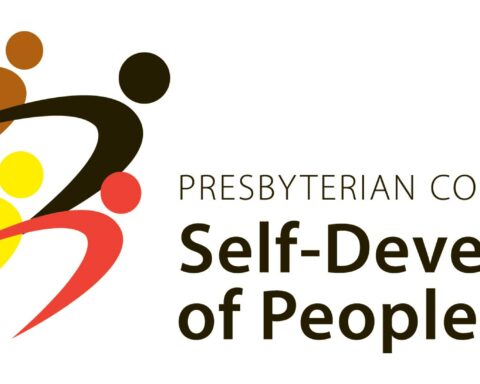Learning from the Faithful Budget Campaign
By Emily Hope Morgan
The recent Faithful Budget Campaign is causing a stir in the political and spiritual world. It calls upon Congress to formulate a federal budget that serves the common interests of all Americans, while guaranteeing particular protections for the most vulnerable in our society. The multi- and inter-faith document is endorsed by my denomination, the Presbyterian Church (U.S.A.). In light of my personal beliefs, the budget makes a lot of sense, and I recently signed the preamble of the campaign to show my support. Since then, I have been wondering what it would look like for individual churches to craft their own budgets with the same principles as the highest priorities:
- Restoring Economic Opportunity
- Ensuring Adequate Resources for Shared Priorities
- Prioritizing True Human Security
- Meeting Immediate Need
- Accepting Intergenerational Responsibility
- Using the Gifts of Creation Sustainably and Responsibly
- Providing Access to Health Care for All
The difference between the Faithful Budget Campaign and individual church budgets is that churches can live out these big ideas in localized concrete, relational ways. The Campaign can say one priority is “meeting immediate need,” and a church community can see those immediate needs and maybe even meet them. What would a community like that look like?
___________________________________________
Maybe it is time to imagine a new way of putting together the church budget…
___________________________________________
Imagine with me for a moment a church that said whenever someone lost their job, “We will make sure you and your family will always have food to eat.” Or a church that provided tutoring for at-risk high school students. Or a church that gave sanctuary to someone who was about to be deported. Or a church that politically advocated for an Islamic community when their permits to build a mosque were revoked. The good news is these ideas are not abstract; there are real churches already meeting the needs of their communities—both inside and outside the church.
Can we imagine a step further? What if church employees, regardless of position, are given a livable hourly wage? What if churches found a way to give health care to all their employees, even if that meant transforming some paid positions to volunteer positions or vise versa? Many secretaries, music directors, youth directors, bookkeepers, Sunday school supervisors, and pastors are not given a livable wage or health care. I have known multiple church committees that base their hiring decisions on whether or not a person has a spouse to support him or her financially.
I can hear people cringing at my questions and statements above. Putting together church budgets are battles between competing interests and realities of declines in tithing. Committees spend hours balancing budgets between education supplies, salaries, worship materials, office necessities, mortgages, utilities, etc. Maybe it is time to imagine a new way of putting together the church budget—a budget that prioritizes and cares for people before it attends to equipment and supplies? What if we began imagining new ways of being communities, new ways of ministering, and new budgets?
As we imagine together, we are not without historical guidance. Just two years ago, the 2010 PC(USA) General Assembly adopted the resolution, “Neither Poverty Nor Riches: Compensation, Equity, and the Unity of the Church,” which drew heavily upon biblical and Reformed theological witness, particularly John Calvin. This study expresses deep concern for growing compensation disparities within congregations, presbyteries, and national staff, charging all bodies of the church to implement alternative budget plans that “exhibit signs of the church’s covenant community.” The statement notes that recent policies have relaxed, even removed, earlier egalitarian structures within the denomination, replacing a maximum 3:1 salary ratio with the more ambiguous instruction that congregations simply offer a “reasonable relationship” between salaries of church employees.
___________________________________________
Also, it is time for someone to say this: we need to sell buildings.
___________________________________________
Also, it is time for someone to say this: we need to sell buildings. We do. Churches are not buildings! Churches are communities! If you are part of a church that is not struggling financially, keep your building; but if you find your community deciding between paying into the pastor’s health care or paying your mortgage, it is time to consider selling your building. Do not confuse the church with the church building! I am not suggesting we leave behind our history or our traditions. There have been times in Christian history when church buildings did not exist. Yes, there was a church when there was no church building. The churches Paul wrote to met in houses. Today, there are churches meeting in houses, school auditoriums, bars, all kind of places.
What could your church do if you did not have to worry about budgeting for building maintenance or another major expense? Could you give a local seminary student funds to buy books for a semester? Could you pay your hard-working secretary a livable wage so she can quit her second job? Could you ensure that every family in your church had food? Could you rent a worship space and buy new hymnals? Could you make a long-term investment in order to sustain the church’s employees for years to come? Could your community re-imagine what it means to love your neighbor as yourself?
The church is in an exciting time. Even the mainline is not mainstream. There are cultural assumptions and stereotypes working against Christian communities. Maybe if we start surprising ourselves with creative budgeting we could surprise others, too. After all, Christian communities are trying to live out the Gospel and follow Jesus, right? That means letting our faith touch our entire lives, even our church budgets. It is up to each community to decipher the ultimate question, though.
How?
Emily Morgan is a student at Princeton Theological Seminary and a Candidate for Ordination in the Presbyterian Church (U.S.A.). She graduated with a BA in History in 2009 from Drury University and plans to pursue congregational and college ministry. She also recently started a website designed to ponder faith issues and get young adults and others thinking about issues in the 21st Century and how they relate to spirituality and religion. Read more at www.fightthebees.com.







Unbound Social